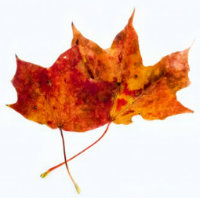
Review by Vicky T. (VickyJo)
This year marks my 30th anniversary of working in public libraries. The first 18 of those years I spent working in Michigan, where I came to know and love many Michigan authors. There is something incredibly appealing about reading books written by people who can capture the essence of a place based on their own personal experience, and for that reason, I enjoyed reading local authors. They were familiar with the things that I was familiar with. They could describe Ann Arbor or Lake Huron or downtown Detroit, and I felt a flash of familiarity.
My first surprise upon moving to West Virginia was discovering how many authors claim West Virginia as their home; the second surprise was how many of these authors and their works I already knew and loved. Pearl Buck, of course, but also Cynthia Rylant, Betsey Byars, and Denise Giardina, just to name a few. However, I really felt as though I needed to read more local authors, people from Pocahontas County. I felt that I could learn about West Virginia through the words of her native sons and daughters.
And the one name that kept coming up again and again was Louise McNeill. It was becoming more and more clear that reading Louise McNeill was my duty. The only thing holding me back was...poetry.
I love the written word, and all kinds of literature, but I have to confess that poetry is at the bottom of my list. I’ve never fully enjoyed poems. I can’t explain it. There are perhaps a handful of poems that really resonate with me, but for the most part, I have a hard time with them.
I was having a conversation with Dwight Diller a few weeks ago. He told me that he too didn’t really like poetry, until he read Louise McNeill. “But I read Louise, and I got it,” he told me. That did it. He must have been the 10th person to tell me to read Louise McNeill, and so after Dwight left, I marched over to the West Virginia section, and grabbed the first Louise McNeill book I saw, which happened to be The Milkweed Ladies.
Serendipity is defined as finding something of value, or something agreeable, when you’re not really looking for it. And for me, The Milkweed Ladies is the most serendipitous book I’ve read all year. For those of you who are familiar with McNeill’s work, you’ll know that her volumes of poetry include Gauley Mountain, Paradox Hill, and Elderberry Flood to name a few. You’ll also know that The Milkweed Ladies is not poetry at all, but a memoir of her early life on her family’s farm. Louise gives us a taste of rural living; a life on a farm where everything revolves so closely around the seasons. She paints the land and the people around her with wonderful, detailed clarity. She tells us about the people she knew and loved, her parents, aunts, uncles, cousins, and even those who had gone before, like Captain Jim, her grandfather, “the verse-writing, hard-set Rebel soldier who died right after I was born so we passed each other in the door.” His wife, Granny Fanny, was an herb-gathering mountain woman whom Louise loved fiercely. She described her as “not of this century; she was wild and running free…In her long black dress and black bonnet, she walked the hills of another time.”
But nothing remains the same, and Louise shows this in an understated way that left a lump in my throat. She discusses the effect of timbering the land, how it affected the farm and her father and uncles: “The change came slowly, and slowly a deep lament began to run through their stories: for the muddy, silted streams; the forest fires; the skid roads bleeding down the eroded hills; and the terrible waste of it all.” Life was hard. It was about survival, but Louise shows us such a beauty in the work, the struggle, the living. And so, her memoir itself becomes a lament as we see the outside world invade Swago---in the form of lumberjacks and railroads, paved roads and war---and we mourn the loss, mourn the inevitable change along with her.
My first thought was that it was serendipitous that I grabbed a Louise McNeill book that wasn’t poetry. But by the time I had finished this slim volume, I knew that it really was poetry; that I had just read an amazing love poem, dedicated to family, life, and West Virginia. That was serendipity. Thanks, Dwight, and all the others who urged me to read Louise McNeill. I'm starting to get it.
*Google Dwight Diller and Louise McNeill for more information on these two amazing Pocahontas County, W.Va. natives.












